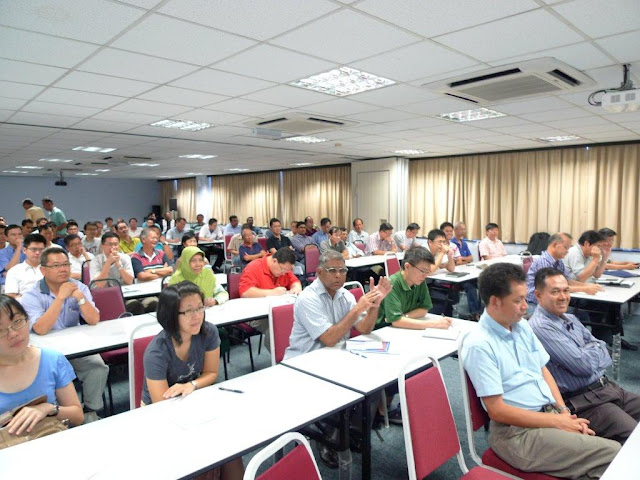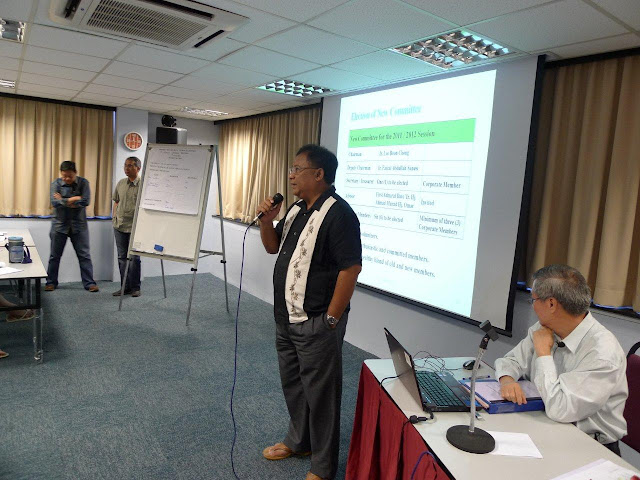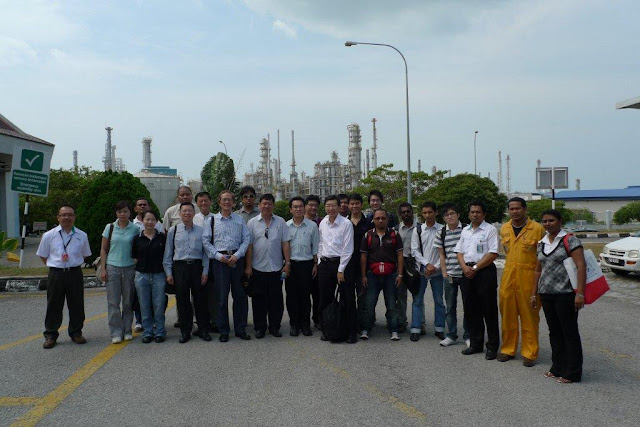 Report by Ir.Tan Ban Loong
Report by Ir.Tan Ban Loong
Synopsis
The Project Management Technical Division (PMTD) of the Institution of Engineers, Malaysia had organised the above talk on 29th January 2011 at Wisma IEM. The talk was attended by 72 participants.
The talk was delivered by Ir. Frankie Chong (BSc, MBA, MIEM, PE, PMP®), past Chairman and Advisor of Project Management Technical Division, IEM. He is currently a Project Management Consultant, founder and Principal Consultant of ASK Consulting and an active professional speaker in Project Management.
Ir. Frankie Chong carried out a simple survey on project management best practices in Malaysia over a period of 2 years in 2006-2008 and found some interesting results and implications which will be useful to Project Management stakeholders, policy makers and practitioners who are looking for some quick answers to decision makings related to project management.
Simple objective type questions on project management best practices were given to multiple groups of project management workshop participants mainly consisting of practicing project personnel, IEM member engineers, architects, QS, consultants, housing developers and some business people. Altogether, about 200 respondents answered 17 key questions related to PM Standards & Methodology, certification, current practices and procedures, software usage, success and failure factors, contracts, etc., the results of which are interpreted and extrapolated in this talk.
Definition Of Best Practices:
The shortest distance between concept and completion.
Summary Of Survey Findings:
1. The majority of respondents:
· Are in support of a formalized and regulated PM environment (78%)
· Achieve overall success rate of <60%. Keeping customers satisfied scores the lowest %.
· Practices ad-hoc Project Management (58%)
· Are in favor of a national Project Management Standard (83%)
· Would like the Project Manager to be a certified professional (88%)
· Feels that training in Project Management is essential, especially in soft skills (88%)
· Believes that a structured PM methodology (90%) can determine the success rate of projects. Others include software (83%), ISO 9000 (84%), TQM (84%), templates (86%).
· Use Microsoft Project software (66%). 19% never use any software!
· 50% of Project sponsors do not get involved widely.
· Biggest constraint is time, followed by cost, customer, scope in that order.
2. The least used PM practices are:
· Value Engineering
· Critical Chain
· Stakeholder Analysis
· Risk Management Plan
· Variance Analysis
· Earned Value Analysis
· PERT Analysis
· Monte Carlo Simulation
· Change Control Board
· TQM
Conclusion and Recommendations of Survey
· Project Management best practices in Malaysia in general are still at Maturity Level 1-2 or introduction stage.
· Success rate of projects can be improved by using a customised methodology in line with a recognised PM Standard.
· There should be more focus on improving Soft Skills in managing people.
· Encourage more relevant PM training and certification of project managers in line with the trend in globalization.
· Many support implementation of a national PM Standard, but not sure whose job it is to develop one?
· This survey is not conclusive. Further research by sector and industry is needed.
During the Q&A session, Ir. Frankie Chong answered all of the questions raised by the participants. He also carried out a survey on the spot with only 4 participants showing hands that have practiced Critical Path Analysis (CPA) and 3 have Project Manager Office (PMO) in their workplace. This reflected the infancy stage of Project Management practices in this country.
The seminar ended at 11.30 a.m. according to the allotted time, practicing one of the best practices of Project Management on timely delivery.



















